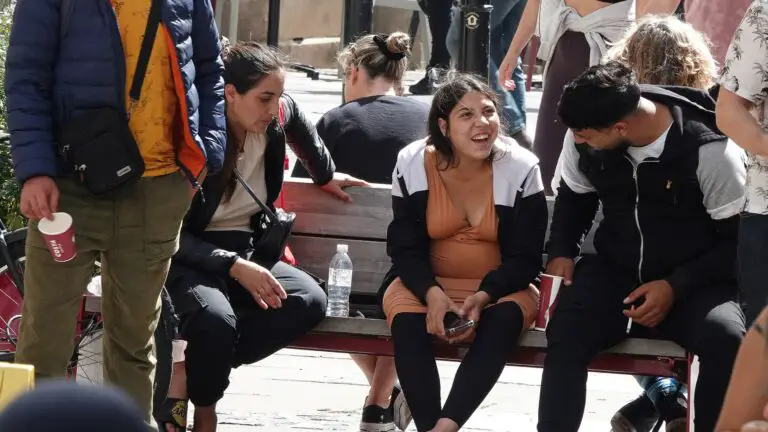Begging Gang Profits £500 a Day by Posing as Homeless in Upscale Bath
In the picturesque town of Bath, a group of approximately ten individuals has been discovered earning £500 each day by posing as homeless people. The group, which includes both men and women, employs a combination of flash Mercedes cars and buses to target both residents and tourists.
Equipped with nearly identical cardboard signs, these impostors rotate their positions at prime spots within the city. Their daily begging routine spans eight hours before they return to a council housing block located 12 miles away in Bristol.
Authorities suspect that organized criminal networks might be exploiting these beggars, coercing them to hand over their earnings. Law enforcement has limited options but can temporarily displace individuals engaged in anti-social behavior, imposing up to 48-hour bans, and issue fines. However, these fines often remain unpaid.
Observations by The Sun revealed the gang’s activities in Bath. One member set down his designer leather satchel, removed his shoes, and sat on a blanket while pedestrians passed by. During lunchtime, two women (one pregnant) relaxed on a bench, accompanied by two male beggars and another man who didn’t participate in panhandling. Later, a gang member left the scene in a blue Mercedes with a custom license plate.
Bath police estimate that so-called “professional beggars” can earn over £50 a day, suggesting that this group could potentially rake in £500 daily or more, especially during weekends and evenings.
Authorities are concerned that these fraudulent beggars divert funds from genuinely homeless individuals, impacting their welfare. An official Big Issue seller voiced frustration, noting instances where people generously gave to the impostors rather than to those truly in need.
Bath police, in collaboration with the city council, are actively addressing street begging issues. Their focus lies on assisting individuals genuinely requiring aid, while also addressing organized criminal activities that exploit vulnerable individuals for monetary gain.
To address the problem, authorities recommend supporting charities that offer assistance services to people in need, rather than directly giving money to individuals.
In March, Prime Minister Rishi Sunak unveiled plans for legislation aimed at curbing public distress caused by beggars and targeting networks behind such operations.

